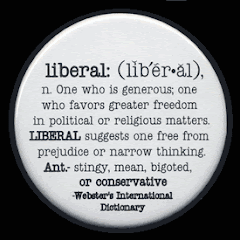This article is taken directly from the web site The Episcopal Cafe' the Speaking to the Soul section. The question that the author addresses is one that should be considered in the light of the upcoming presidential election. A choice that we have to make is should wealth be consintrated in the hands of a few at the top of the economic ladder of should it be more evenly distributed among all segments of society. This article allows us to think critically about that question. Something else to consider is the idea from Jim Wallis that says that a budget is a moral document. How should this inform our thinking about the distribution of wealth?
(The original article can be found at: http://episcopalcafe.com.)
We find in the Christian fathers vigorous denunciations of all keeping of private wealth such as is not needed for the support of the possessor’s own family. Such selfish keeping of wealth from the common fund they call—not lack of generosity only, but injustice or theft. It is not that they deny the necessity of private property. In a world of sin private property must exist, and the law must maintain it. But it is only to be justified when it is reduced to the minimum needed to meet the reasonable requirements of life according to a man’s condition. God gave the earth with its resources for the common good; and the spirit of love and justice must keep it so. Charles Gore, Christ and Society (New York: Charles Scribner’s Sons, 1928), pp. 89-90.
If we take Jesus seriously, nothing could be more basic to the Christian Faith than economic justice. Vast inequalities, such as we often take for granted (or even try to justify), simply cannot be reconciled with our heritage as Christian people. For the Church Fathers, they constitute not only a failure of generosity but “injustice or theft.”
Gore may have gone too far when he claims that private property must be reduced to the “minimum.” Surely, we can have more than that, so long as others are not in misery. But so long as others are in misery, as they clearly are, it is a question for careful discernment (and democratic politics) how much we may legitimately possess, even in a “world of sin.” As I’ve said before, I think that a good rule of thumb is the “difference principle” articulated by John Rawls. Social differences are permissible to the extent to which they benefit the least well off. I can see quite a bit of capital accumulation consistent with this standard, but not so much that it subverts democratic institutions, so that those who have much are able to dictate to those who have little or nothing. Nor can we ever justify the kind of hand-over-fist thievery that exists at the top of the economic pyramid in just about every age.
Seeing our property, whether a lot or a little, as held in trust for our neighbors is the solemn duty of all Christian people. Even though they have less to begin with, the poor are often better at this than the wealthy, because they know that they are one crisis away from needing their neighbor’s help themselves. The rich, by contrast, may well be tempted by illusions of self-sufficiency which are an affront to the Creator, who “gave the earth and its resources for the common good.” In light of our never failing capacity for rationalization, whether what we have truly benefits others is a question that calls for careful self-examination. If the Gospel is to be credible in our society, we need to be better at answering this question honestly and changing our lives accordingly.
The Rev. Bill Carroll serves as rector of Emmanuel Parish, Shawnee in the Diocese of Oklahoma. His new parish blog is Emmanuel Shawnee Blog
Posted by Ann Fontaine on June 14, 2012 4:04 AM | Permalink | Digg this | Comments (0)

.jpg)





